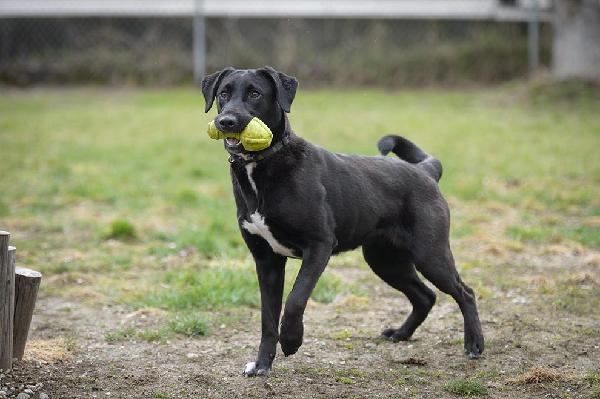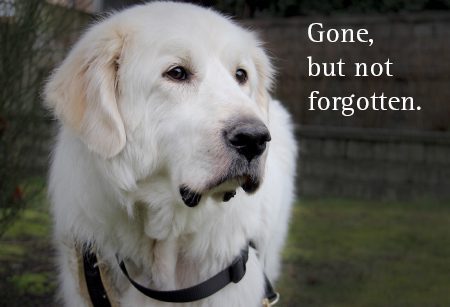The BC SPCA recognizes that inappropriate aggression by dogs against people and other animals is a serious threat to public safety, and that this issue must be addressed if we are to create humane societies where humans and dogs coexist and enrich each other’s lives. The BC SPCA opposes breed banning as a strategy for addressing incidents of aggression and reducing dog bites. Rather, the Society believes that the most effective way to address public safety concerns is for humane organizations, other animal stakeholder organizations, municipalities and the provincial government to work together on multi-faceted strategies that identify and address dangerous dogs of all breeds.
Approved by the Board of Directors – October 2004
Background
Suggested strategies
Successful models for dealing with canine aggression do exist in other countries. These models focus on legislation, education and the creation of remedial resources for aggressive dogs. The BC SPCA believes the most effective approach to dealing with the issue of inappropriate canine aggression in our communities is to develop an approach based on these models. Strategies may include:
Legislation
- Development and enforcement of harmonized animal control bylaws which promote spaying and neutering, make pet identification mandatory, restrict the keeping of backyard dogs and place the burden of responsibility for an animal’s actions on the guardian, not the dog;
- Creation of tougher laws to address the animal neglect that contributes to canine aggression;
- Development of effective licensing schemes that regulate breeding facilities, pet shops, trainers and others in the animal sector who influence canine behaviour;
- Registration of aggressive dogs through reporting by veterinarians, groomers, police, postal carriers, animal control officers, meter readers, and humane organizations;
- Creation of a centralized, accessible database that accurately records dog bite incidents;
- Promotion of mandatory remediation by certified specialists for dogs reported as dangerous;
Education and remediation
- Commitment to education on responsible pet guardianship, canine behaviour and dog bite prevention;
- Creation of resources for guardians of dogs with aggression problems, including the identification and certification of specialists who can provide remedial measures for canine aggression.
Note: It is essential that sufficient resources be allocated to ensure that the strategies outlined above can be implemented and enforced effectively.
Addressing the root causes of aggression
The BC SPCA believes it is important that any approach to the issue of dangerous dogs consider the range of factors which play a key role in canine aggression, including:
- Genetic factors: Fearful and aggressive dogs are more likely to have aggressive offspring than other dogs, regardless of the breed.
- Sexual status: Un-neutered males are involved in 70-76 % of dog bite incidents. Un-spayed females encourage roaming and aggressive behaviour in males, regardless of breed.
- Early experience: Puppies are more likely to be aggressive if they are raised by irresponsible breeders who do not provide them with proper socialization and who later sell or give them away to people without proper matching or guardian education.
- Later socialization, training and proper care: Dogs are more likely to become dangerous if they live with irresponsible guardians who do not provide them with proper training, socialization, medical care and adequate living conditions.
- Victim behaviour: Some people get bitten because they are unfamiliar with canine behaviour and do not behave safely around dogs.
- Lack of remedial expertise: There is currently a lack of certified specialists available for pet guardians who are seeking help to remediate aggressive behaviour in their dog.
- Unaddressed pain, injury and disease.
Breed specific legislation
The BC SPCA opposes breed specific legislation as a strategy for reducing inappropriate aggression and dog bites for the following reasons:
- Breed specific legislation ignores the fact that aggressive behaviour can occur in any breed and therefore does not protect the public.
- There are no efficient methods to determine a dog’s breed in a way that can withstand legal challenge or be a foolproof method for deciding whether a guardian is in compliance or violation of laws. Any breed ban bylaw inevitably results in the creation of subjective, arbitrary factors to determine breed.
- Popularity of breeds changes over time — what is identified as a “dangerous breed” today, may be different tomorrow. Some countries with breed laws now have upwards of 30 breeds on record, all of which require enforcement.
- People who want aggressive dogs simply switch to another breed or select a cross-breed that cannot effectively be identified as belonging to or looking like a specific breed. Breed specific restrictions in bylaws do nothing to discourage irresponsible behaviour by individuals who breed, train, sell or possess dangerous dogs not covered by the breed specific legislation.
- There is no reliable way to identify the number of dogs of a particular breed in the canine population at any given time making financial planning for enforcement of breed legislation nearly impossible
- Breed specific legislation treads upon the rights of responsible dog guardians who cherish a non-aggressive pet whose breed may fall under the legislation. Conversely, the guardian of an aggressive pet whose breed does not fall within the legislation will not be subject to appropriate legislative remedies.
Background updated – November 2013





